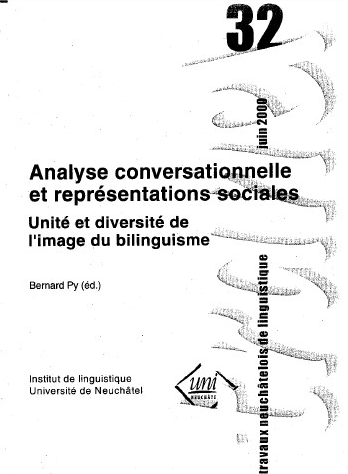Définir le bilinguisme. Catalogue des critères retenus pour la définition discursive du bilinguisme
DOI:
https://doi.org/10.26034/tranel.2000.2536Abstract
Definitions of bilingualism are based on different, sometimes contradictory criteria, both in scientific and ordinary use of the term. Some of the criteria most often used in scientific work about bilingualism are compared to those used by the participants of the Neuchâtel research, as they are talking about bilingualism, either trying to give a definition of bilinugalism or simply talking about bilingual people, places or settings. It is obvious that the participants' conceptions are influenced by the two stimuli they were given during the recorded conversation, i. e. the scientific definitions of Grosjean and Bloomfield. These definitions acquire conversationally a different status: while the former, focussing on language use, is merely regarded as a minimal condition of bilingualism, the latter, insisting on language mastery, tends to be interpreted as an ultimate aim for «perfect bilinguals», a top level that is virtually impossible (or not necessary) to be achieved.Downloads
Published
2000-06-01
How to Cite
Elmiger, D. (2000). Définir le bilinguisme. Catalogue des critères retenus pour la définition discursive du bilinguisme. TRANEL, (32), 55–76. https://doi.org/10.26034/tranel.2000.2536
Issue
Section
Article thématique


